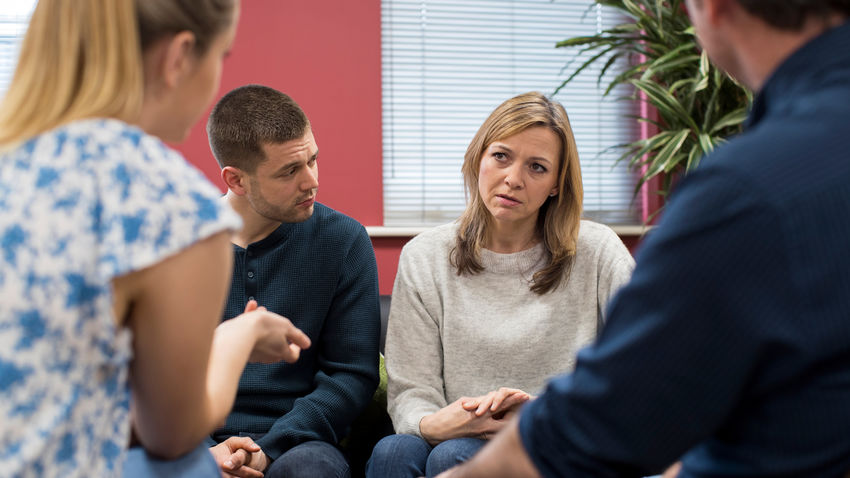
Substance use is a major problem among young people who are experiencing early psychosis, but there’s been little guidance to help healthcare professionals work with patients who are dealing with these issues together. Now, Elizabeth Thomas, a research assistant professor in the Department of Social and Behavioral Sciences, has shared her expertise by co-authoring a new government-published guidebook on the subject.
The Substance Abuse and Mental Health Services Administration (SAMHSA) has made First-Episode Psychosis and Co-Occurring Substance Use Disorders available for download to healthcare providers. Thomas co-authored the guide with Melanie Bennett of the University of Maryland School of Medicine and members of SAMHSA and Westat, with input from a national panel of experts.
“It’s geared towards mental health clinicians that work with individuals with early psychosis, in what are called coordinated specialty care programs,” said Thomas, whose work in the Temple University Collaborative on Community Inclusion has focused on psychiatric rehabilitation and early intervention in psychosis. “To date, there has not been a strong understanding of how to treat substance use disorders within the context of early psychosis, which speaks to the importance of this guidebook.”
Psychosis refers to a condition that makes it difficult for an individual to differentiate what is and isn’t real, as the new guidebook explains. People may perceive things that other do not or hold strong beliefs about things that aren’t true. Symptoms most commonly arise between ages 16 and 30. Early or first-episode psychosis describes the period of up to five years after the onset of symptoms. Widely ranging estimates say anywhere from 13 to 51 percent of young people who have first-episode psychosis have a substance use disorder at the start of treatment for psychosis.
Substance use can make recovery from a first episode of psychosis more difficult, according to Thomas. For example, it can interfere with patients’ adherence to taking prescribed psychotic medication.
“People may use substances instead of taking their anti-psychotic medication, or substance use can make medication less effective,” Thomas said. Some research has shown that substance use, particularly cannabis, could increase risk for a psychotic disorder in people with a genetic predisposition. She added: “There's a poor prognosis among people who have both issues.”
Pulling from dozens of studies, Thomas and Bennett highlight specific interventions used to treat substance use among individuals with early psychosis to examine their strengths and weaknesses. They highlight common elements that seem to work, make recommendations, and offer advice for implementing best practices based on real-world examples. Many interventions, for example, include a relapse prevention component, talking to people about how to deal with triggers and high-risk situations to avoid relapse of substance use.
A main theme of the guide is the benefit of coordinated specialty care programs where “everyone working with the young person is part of the same team,” Thomas says. These coordinated specialty care programs have psychiatrists who provide medication, individual therapists for the patients, and family therapists for their loved ones. They may have support specialists who help patients with work- and school-related goals. Some also have peer support, nurses and other staff. The “one-stop shop” approach, when it is available to patients, seems to offer hope.
“One of the interesting things we found is that a lot of people will reduce or stop using substances after coming to a coordinated specialty care program, in which substance use is discussed as a part of recovery, but may not necessarily be the focal point,” Thomas says. “About 50% of people will reduce or stop using substances just from receiving care for early psychosis. And then some people may need more concentrated focus on addressing substance use.” The guidebook, as well as future research, will support programs in better meeting the needs of individuals with early psychosis who have persistent substance use issues.
